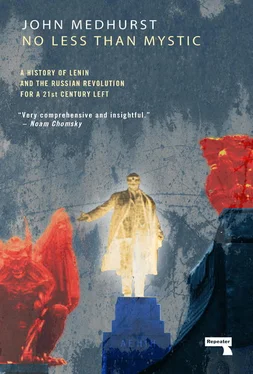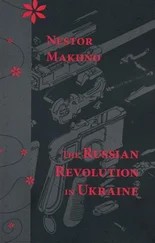It should not have been a surprise to a Marxist trade union leader like Arthur Scargill that the British ruling class and its political front, the Tory Party, were cruel and ruthless, or that they had a deliberate strategy to defeat the NUM and reduce the mining industry. This strategy, carried out in its entirety in 1984-85, had been laid out in the “Ridley Plan” of 1977 and leaked to the press. Given the clear forewarning an intelligent and responsible trade union leadership should have prepared accordingly, i.e. not take the bait when Cortonwood colliery was threatened with closure in March 1984, not rush to a strike when coal stocks were so high, not alienate public opinion by refusing to hold a national ballot which, with time and organisation, it could have won. Instead it simply launched a mass strike as if it was the “glorious summer” of 1972, not 1984 with a different kind of government and a culturally and politically fragmented working class far less likely to demonstrate industrial solidarity.
Although the NUM Executive endorsed his strategy, the ultimate responsibility for the misjudgments rested with Scargill. Even in the 1980s he was an unrepentant Stalinist (in 1981 he defended the Soviet Union’s invasion of Poland and its crushing of the independent trade union Solidarity) with almost no conception of modern Britain and its workforce beyond the mining industry. His dogmatic politics and parochial thinking were instrumental in the defeat of the strike–as more intelligent officials such as the Scottish communist Mick McGahey knew, although he kept to trade union discipline and voiced his criticisms in private. The refusal to hold a national ballot, instead substituting a series of Area ballots, was not just a PR disaster but wrong in principle for what was an obvious national action. If a trade union thinks it cannot win a national ballot of its members it should either work to convince a majority to vote for one, or not launch national action.
In the social and political atmosphere of 1984-85 there was very little chance that a miners’ strike like those of the early 1970s would succeed, or that an appeal to collective working-class solidarity–such as had been successful at Saltley Gates in 1972–would produce the same result. The subsequent discrediting of Scargillism in the wider labour movement gave perfect cover to those amongst the trade union bureaucracy who shy away from any fight–principled, smart, innovative or otherwise–with the Tories or with powerful employers. The most shameful example of this kind of defeatism came in November 2011 when major public-sector trade unions the GMB, Unison, PCS and the NUT took one-day national strike action to defend public-sector pensions and a decent retirement age. The strike was a mini-General Strike with nearly two million workers out. It could have heralded a mass anti-austerity movement to defend the welfare state and basic employment rights, of the kind that French trade unions had successfully carried out in opposition to the French government’s plan to the raise the retirement age to 62.
In Britain things played out differently. After the one-day national action on 11th November, 2011, as many within the unions and anti-austerity campaigns called for escalation against a clearly rattled government, the leaders of the GMB and Unison simply surrendered, conducting secret negotiations of their own with government ministers and then signing the “Heads of the Agreement” that provided for a rise in the retirement age to 67 on a reduced pension. The surrender left more militant unions like PCS and the NUT exposed and unable to carry on the fight on their own. The supine General Secretary of the GMB who led the climbdown, Paul Kenny, was rewarded by the Tories with a Knighthood, which he accepted “on behalf of his members”. Sir Paul went on to endorse fracking and attack Jeremy Corbyn for his anti-Trident policy.
The Leninism of Scargill and the abject defeatism of Kenny are two sides of the same coin–unimaginative, inflexible strategies imposed by arrogant trade union leaders convinced they speak for their members. If British trade unions are to lead successful campaigns to defend jobs and conditions, much less to participate in broader anticapitalist struggles, they have to transcend both. This will involve making alliances with a variety of organisations and campaigns such as the National Campaign Against Fees and Cuts, UK Uncut, Sisters Uncut, Frack-Off, the Anti-Bedroom Tax, the Benefit Justice Federation and others. In doing so they will have to move away from the sectional mentality and bureaucratic procedures that have defined them since the creation of the TUC in 1868 and embrace the principles and methods of Social Movement Unionism.
One hundred years before the Miners’ Strike, the German SPD was similarly tested. It had gone through the persecution of Bismarck’s Anti-Socialist laws in the 1880s and emerged stronger for it. In 1890 it secured 1,400,000 votes and won 35 seats in the Reichstag. Its 1892 Erfurt Programme, drafted by Kautsky, was essentially the Maximum Programme, predicting the inevitable demise of capitalism because of its inherent contradictions. Throughout his life Kautsky maintained that if the development of the productive forces of a capitalist society was partial or insufficient, if its proletariat was “immature” or lacked political cohesion, then the efforts of socialists to introduce a socialist programme could not succeed. But by 1914 he considered the productive forces and the labour movements of Western Europe and America had reached this level, and that therefore the key element in these circumstances was the “ political result of the conquest of political power by the proletariat and not of the automatic collapse of the capitalist mode of production”. 26
As early as 1892, Kautsky had supplied a commentary to the Erfurt Programme that filled the gap between the Maximum and Minimum Programmes. Of the “overthrow” of capitalism, he wrote:
A social revolution is not something that must be resolved in one fell swoop. Indeed, it may be doubted that this has ever happened. Revolutions are prepared in the course of political and economic struggles which last for years and decades, and occur through continuous modifications and oscillations in the relationship of forces between the particular parties and classes, often interrupted by counter-attacks of long duration (periods of reaction). 27
The SPD would meanwhile exploit the expanded franchise of Imperial Germany to advance a programme of immediate demands to improve the lives of the working class. In 1892, Engels noted with approval the political progress of the SPD and its use of the democratic franchise to increase its support, which he considered “a model for the workers of all countries”. He concluded, “we are thriving far better on legal methods than on illegal methods and revolt”. 28
Eduard Bernstein, with characteristic lack of cant, summed up the unarticulated beliefs of the majority of “practical” reformers and trade unionists across Europe who reserved flights of Marxist rhetoric for highdays and holidays. Writing in the SPD’S theoretical magazine Neue Zeit in 1898, he presented these beliefs with blunt honesty. “I frankly admit”, he wrote
that I have extraordinarily little feeling for, or interest in, what is usually called the ‘final goal’ of socialism. This goal, whatever it may be, is nothing to me, the movement is everything. And by movement I mean both the general movement of society, i.e. social progress, and the political and economic agitation necessary to bring about this progress. 29
Although this was the wide-spread belief system of most socialists in Western Europe, it was terra incognita for Lenin. Politically and intellectually marginalised on the edge of Europe, raised and formed within a state that had more in common with China than with Germany, he had no intuitive understanding of these developments. For him Bernstein and the reformists were simply cowards and criminals. This mentality led to an overestimation of the chances of violent social revolution in Western Europe and a widening of the gulf between Bolsheviks and Mensheviks in the RSDLP.
Читать дальше












